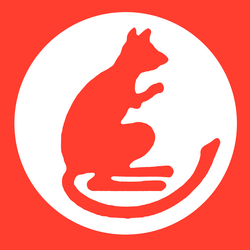The 7th Support Group was a supporting formation within the British 7th Armoured Division, active during the Second World War's Western Desert Campaign.
| 7th Support Group | |
|---|---|
 | |
| Active | 22 January 1940–9 February 1942 |
| Country | |
| Branch | |
| Type | Armoured Support Group |
| Role | Armoured Division Support |
| Size | Brigade |
| Part of | 7th Armoured Division 1st Armoured Division |
| Commanders | |
| Notable commanders | William Gott John Campbell |
| Insignia | |
| Identification symbol | Red Desert Jerboa[1] |
History
editThe 7th Support Group was formed from the expansion of the 7th Armoured Division's existing pivot group. The pivot group, and later the support group, controlled the division's motorised infantry, field artillery, anti-tank guns, and light anti-aircraft guns. While the artillery would provide support for the tanks on an attack, the infantry were intended to protect the division's base or occupy territory captured by the tanks and not supplement them. Towards the end of Operation Crusader, the support group joined the 1st Armoured Division for a couple of weeks before reverting to the command of the 7th Armoured Division. The 7th Support Group was abolished in February 1942, after Crusader came to an end, following a reorganization of the British armoured forces in North Africa.
Commanders
edit- Lieutenant-Colonel E. S. B. Williams (acting), from 22 January 1940
- Brigadier William Gott - initially the acting commander from 31 January 1940. Gott was then promoted from Lieutenant-Colonel to Brigadier, to officially become the formation's commander from 16 February 1940.
- Brigadier John Campbell - Took command on 12 September 1941. During his tenure as commander, Campbell earned the Victoria Cross.
Order of battle
editWestern Desert Force, 1939[citation needed]
editOperation Compass
edit- 4th Regiment, Royal Horse Artillery
- 1st Kings Royal Rifle Corps
- 2nd Rifle Brigade
Operation Battleaxe, June 1941
edit- 1st Regiment, Royal Horse Artillery[citation needed]
- 4th Regiment, Royal Horse Artillery
- 1st Kings Royal Rifle Corps
- 2nd Rifle Brigade
Operation Crusader, November 1941
edit- 3rd Regiment, Royal Horse Artillery
- 4th Regiment, Royal Horse Artillery
- 1st Kings Royal Rifle Corps
- 2nd Rifle Brigade
- 60th (North Midland) Field Regiment, Royal Artillery
- One Bty, 51st Field Regiment, Royal Artillery
Footnotes
edit- ^ Leakey & Forty 2002, pp. 102–103.
References
edit- Leakey, R.; Forty, G. (2002) [1999]. Leakey's Luck: A Tank Commander with Nine Lives (pbk. ed.). Stroud: Sutton. ISBN 978-0-7509-3195-3.
- Joslen, H. F. (2003) [1960]. Orders of Battle: Second World War, 1939–1945. Uckfield, East Sussex: Naval and Military Press. ISBN 978-1-84342-474-1.
- Playfair, I. S. O.; et al. (1959) [1954]. Butler, J. R. M. (ed.). The Mediterranean and Middle East: The Early Successes Against Italy (to May 1941). History of the Second World War, United Kingdom Military Series. Vol. I. 3rd impression. HMSO. OCLC 888934805.